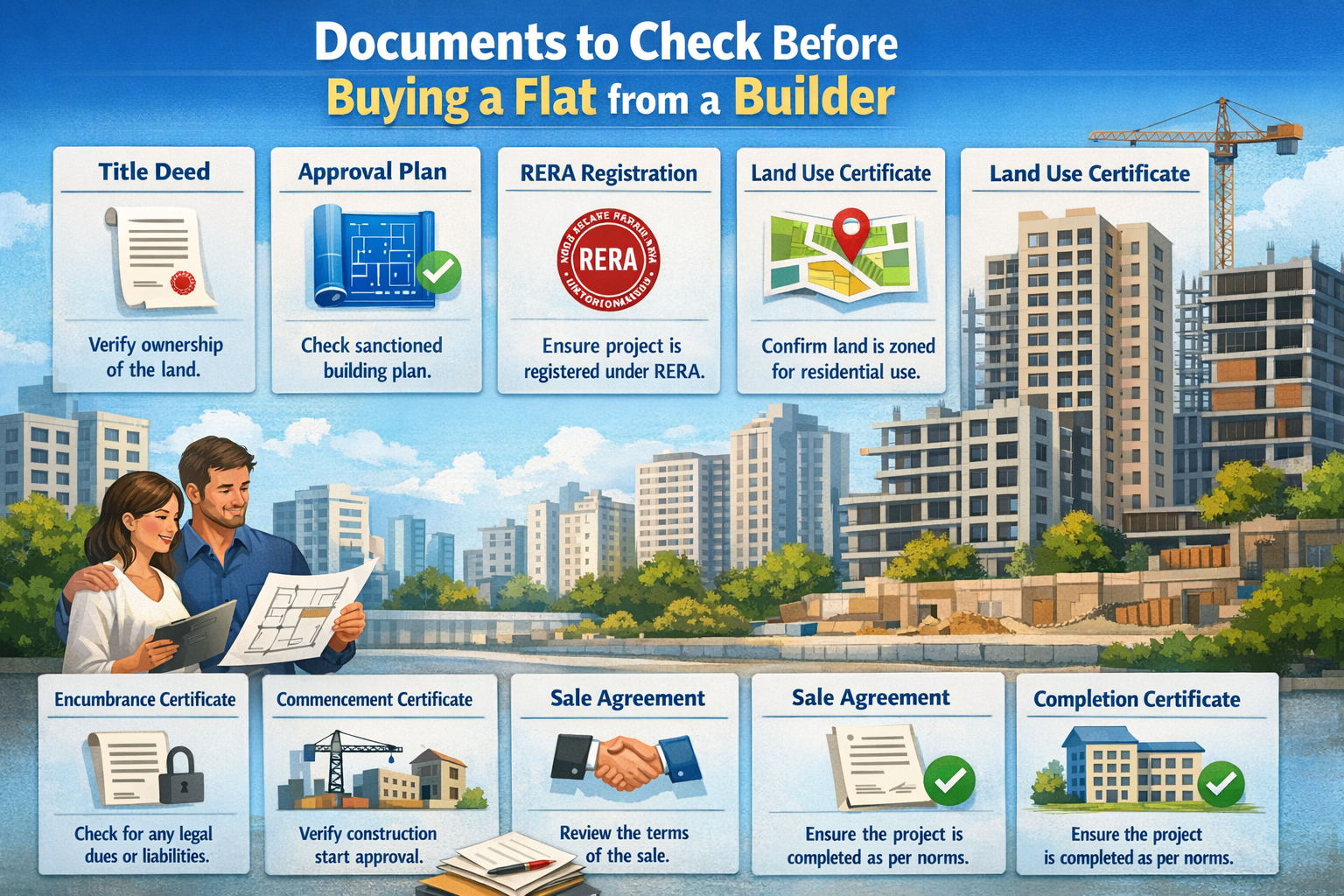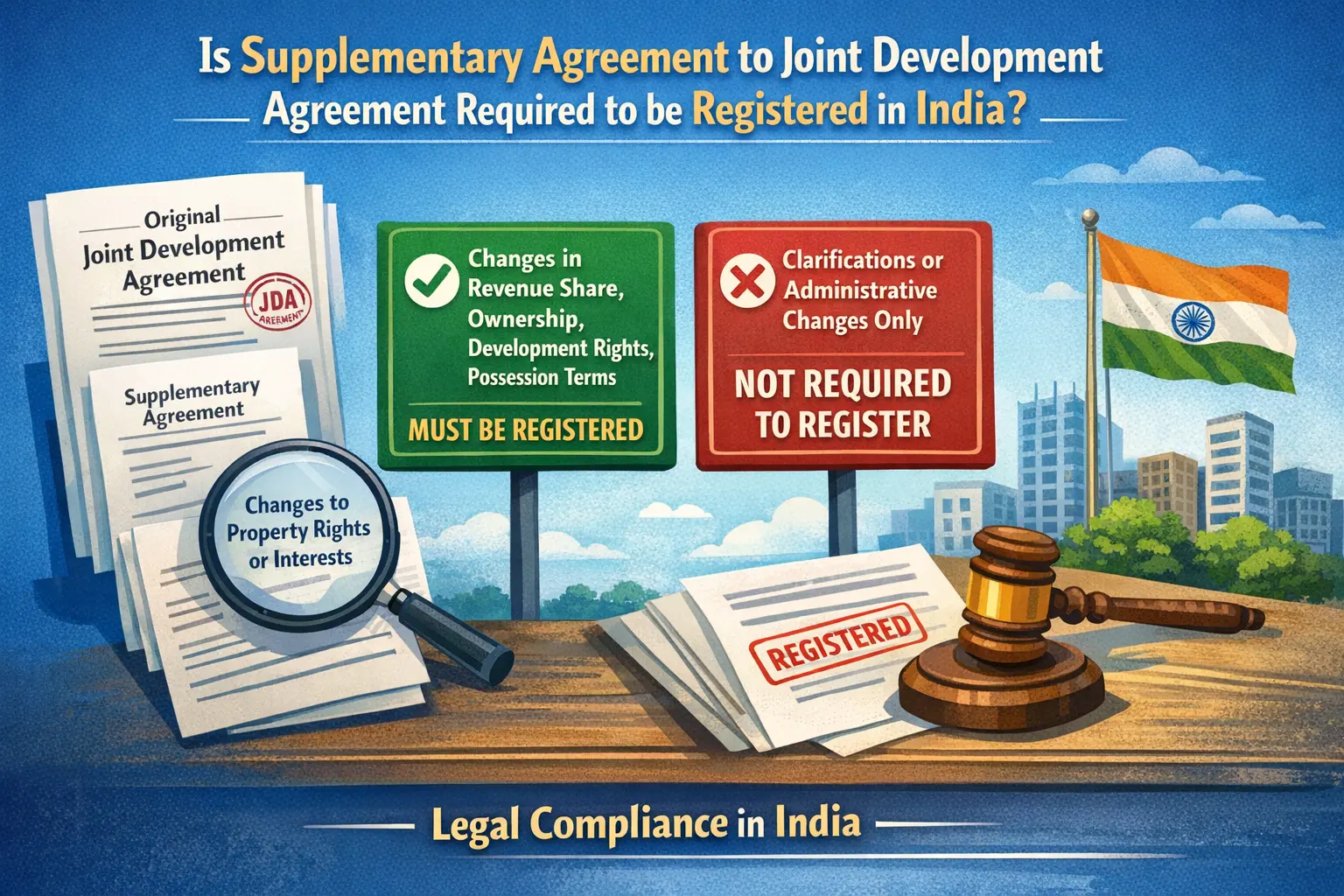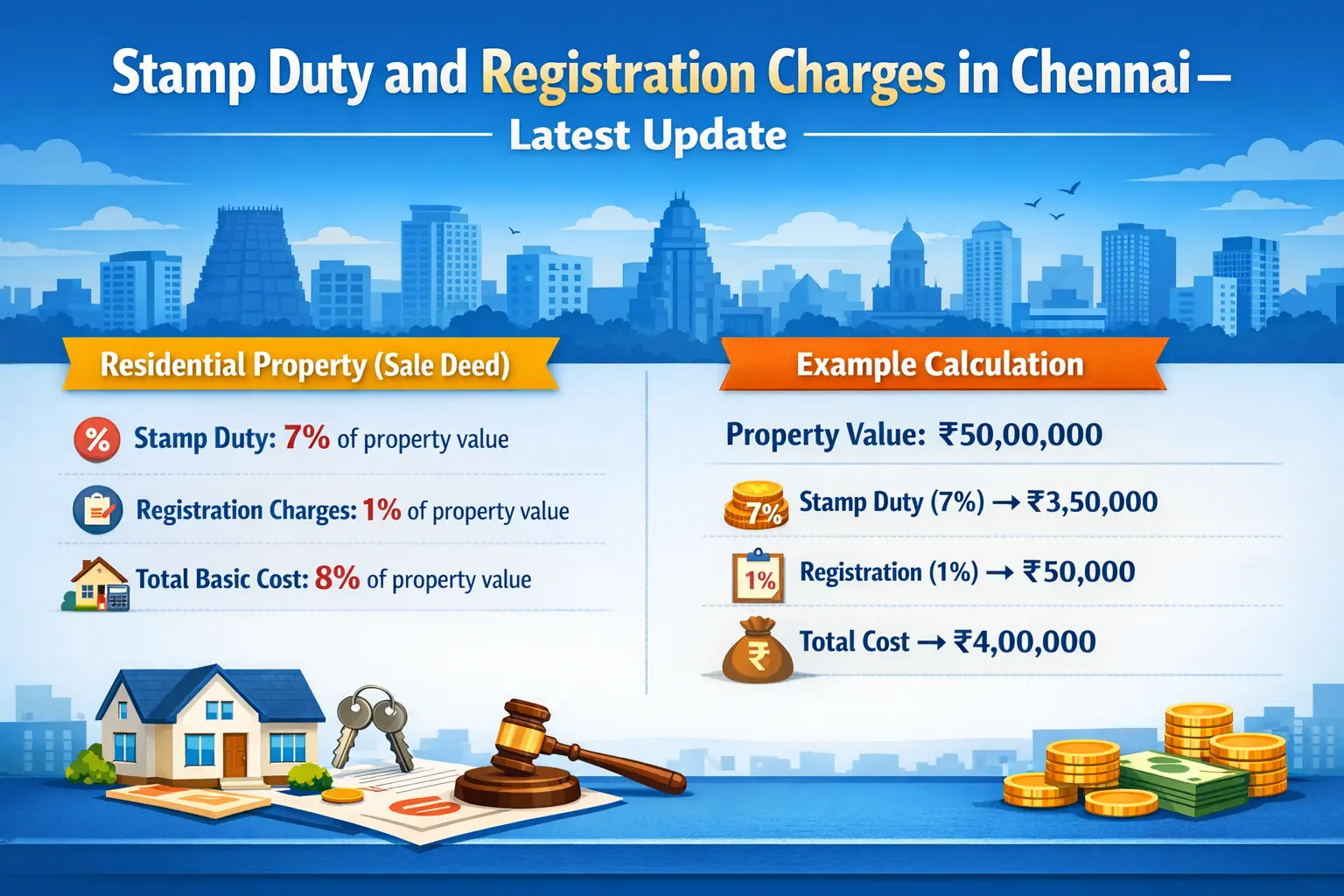Building your dream home is one of the biggest decisions in life. But before you start construction, it's important to understand that you need multiple approvals from government departments to make sure your home is legal, safe, and connected to essential services.
1. Patta, Chitta & Adangal – Proof of Land Ownership
What is it?
These are official government documents that confirm:
-
You are the legal owner of the land.
-
The land’s type – whether it’s residential or agricultural.
Why it’s important:
You can only build a house if your land is marked for residential use. Agricultural land cannot be used for building homes unless it’s converted first.
Where to get it:
From the Tamil Nadu Revenue Department, you can check online through the eservices.tn.gov.in portal.
2. Land Conversion Approval (If Land Is Agricultural)
What is it?
If your land is marked as "agricultural", you need to get it converted to residential use before construction.
Why it’s important:
Without conversion, you cannot legally construct a home or get building plan approval.
Where to apply:
Submit an application to the District Collector or apply online via the Tamil Nadu e-Sevai portal.
3. Layout Approval from Planning Authorities
What is it?
If your land is part of a bigger layout (like a plotted development), the layout must be approved by government planning bodies.
Who approves it?
-
CMDA – Chennai Metropolitan Development Authority (for Chennai and suburbs)
-
DTCP – Directorate of Town and Country Planning (for other districts)
-
LPA – Local Planning Authorities (for smaller towns)
Why it’s important:
If the layout isn’t approved, you may not get a building plan approval, water, or EB connection.
Tip:
Always verify the layout approval number before buying a plot.
4. Building Plan Approval (Sanctioned Plan)
What is it?
Before starting construction, you need to submit your house plan to your local authority and get their approval.
Who gives it?
-
Municipality
-
Corporation
-
Town Panchayat
Documents Required:
-
Sale Deed
-
Layout Approval copy
-
Encumbrance Certificate (EC)
-
Site plan & building drawing (prepared by a licensed architect or engineer)
Why it’s important:
This confirms your home design follows zoning rules, height restrictions, setbacks, and other building rules.
5. Structural Stability Certificate
What is it?
A certificate from a structural engineer confirming that your building plan is safe and stable.
Who needs it?
Required for multi-storey buildings, villas, and apartments.
Single-floor homes may not always need it, but it’s still good to have.
6. Water and Drainage Connection Approval
What is it?
Approval to connect your home to the local water supply and underground drainage system.
Where to apply:
At your local Panchayat / Municipality / Corporation Office.
Why it’s important:
Without this, you’ll struggle with basic facilities like water, sewage, and sanitation.
7. Electricity Connection (TANGEDCO Approval)
What is it?
Approval to get a domestic electricity connection from Tamil Nadu EB (TANGEDCO).
When to apply:
Once your walls are up, you can apply for EB connection.
Documents Needed:
-
Building plan approval
-
Ownership proof
-
Completion Certificate (in some cases)
Tip:
Hire a licensed electrician to handle the wiring and safety requirements.
8. Fire Safety NOC (For Apartments / High-rise Buildings)
What is it?
A No Objection Certificate (NOC) from the Fire and Rescue Department confirming that your building has proper fire safety arrangements.
When is it required?
If you're building:
-
Apartments with multiple units
-
Buildings more than 2 floors
-
Any commercial/residential complex
Why it’s important:
This ensures the building has fire exits, extinguishers, and is safe for occupancy.
9. Completion Certificate (CC)
What is it?
Once your home is fully built, the local authority inspects the construction and gives a Completion Certificate.
Why it’s important:
This confirms the house was built according to the approved building plan – not more, not less.
10. Occupancy Certificate (OC)
What is it?
This is the final approval that says you can legally live in the house.
Why it’s important:
Especially important for apartments, villas, and flats. Without it, banks won’t give loans or allow resale.
What You’ll Need
| Approval Type | Needed For |
|---|---|
| Patta & Chitta | Land ownership proof |
| Land Conversion | If land is agricultural |
| Layout Approval | Plotted layouts |
| Building Plan Approval | All new constructions |
| Structural Stability Cert. | Multi-floor or large homes |
| Water & Drainage Approval | Water and sewage connection |
| EB Connection (TANGEDCO) | Power supply |
| Fire NOC | Apartments or high-rises |
| Completion Certificate | After construction is done |
| Occupancy Certificate | Before moving in / resale |
https://www.livehomes.in/blogs













